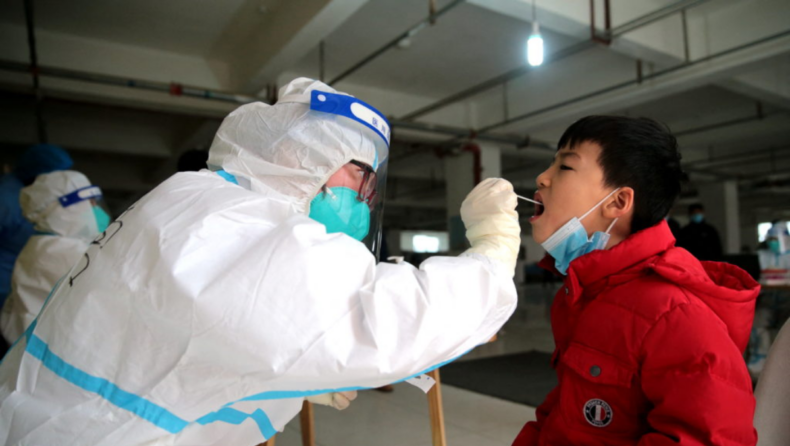Beijing shuts down in light of the vicious surge in Covid 19 cases linked to a 24-hour bar.
o Beijing authorities launch investigations into Heaven Supermarket bar suspected to be the center of rapidly spreading Covid-19 outbreak.
o The outbreak triggers mass tests, sent thousands of contacts to centralized quarantine facilities, and closed down entertainment venues across the capital.
After reporting its highest tally of daily Covid-19 cases in 3 weeks, Beijing resolved to re-impose restrictions days after easing some of them to avoid strict lockdown like Shanghai. The city recorded 74 infections on Monday, the highest since May 22 which was when Beijing saw a record number of cases for the current outbreak. Chinese vice-Premier, Sun Chunlan, China’s top official for pandemic control, urged Beijing to control the outbreak “as soon as possible,” the official Xinhua News Agency reported late Sunday.
Meanwhile, Beijing government spokesperson, Xu Hejian confirmed in a news conference that about 166 cases have been linked so far to the outbreak at the Chaoyang Heaven Supermarket Bar. The bar had reopened on June 6, the same day when the latest outbreak was triggered by an individual said to have not taken the Covid-19 test for days. Authorities reported 33 new cases on Sunday. The capital has reported 1,997 local Covid cases since April 22.
The spread is stipulated to have started on Thursday last week after an infected person who hadn’t been recently covid tested visited the Heaven Supermarket club in downtown Gongti, a nightlife hub. It has been reported that out of the total cases, 145 were customers, 21 were staff members and people who came in contact with the suspected carriers.
Covid testing is underway as authorities enforce restrictions
Beijing officials have assured in a press briefing that mass testing has been scheduled between Monday and Wednesday in Chaoyang district, where the bar is located. Three rounds of mass testing have been announced to ensure thorough detection in the decidedly populous district of Chaoyang. This is consistent with China’s zero-Covid policy, a drive to weed out outbreaks early with thorough measures such as heavy restrictions on movement and mass testing.
Chinese authorities had only begun to peel back some restrictions but the Beijing outbreak has turned the incentive around. Most schools in Beijing have delayed reopening as was planned for Monday, while all sports competitions had been halted. Restaurant in-dining had been allowed but had to be curbed after the fresh outbreak. On the other hand, Shanghai districts had suspended all dine-in services at restaurants, with the financial hub reporting 17 cases for Monday, a notch low from 37 on Sunday.
While cases in Beijing and Shanghai are still below the higher levels seen in May owing to stricter Covid restrictions being in place, authorities have been relatively quick to re-impose curbs after outbreaks that seem to crop up after announced success in bringing the outbreak under control.
China’s zero- Covid approach also included an unprecedented two-month lockdown of Shanghai and harsh restrictions in other parts, of course coming at an expensive economic and social cost, and the recent outbreak highlights the difficulties faced by authorities in enforcing actions to eliminate infections. Nonetheless, China perseveres to try and wipe out cases, even as many parts of the world accept the virus as endemic, opening up their borders and economies.
Chinese Vice Premier, Sun Chunlan, upheld China’s zero- Covid principles, saying that the control measures should be quick, flexible, scientific, and targeted. Beijing should create suitable conditions for the Communist Party congress to be held later this year, Sun was reported as saying.
Many China watchers have said the country is unlikely to ease its approach to Covid or open up before the congress, where President Xi Jinping is expected to get an unprecedented third term.













